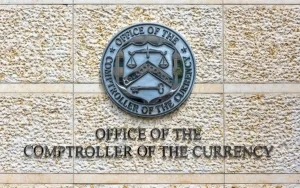
The Office of the Comptroller of the Currency (OCC) has officially permitted banks to offer custody services for crypto assets and manage digital assets on behalf of their clients. This marks a significant regulatory shift, allowing traditional financial institutions to integrate cryptocurrency services into their operations.
What Does This Mean for Banks?
Under the new guidelines:
🔹 Banks can provide crypto custody services, securing digital assets for clients.
🔹 Banks can hold dollar reserves for stablecoins, ensuring their backing by fiat currencies like the U.S. dollar.
🔹 Banks can participate in blockchain validation, acting as node operators in decentralized networks.
Previously, financial institutions were required to obtain specific approval from the OCC, proving they had proper risk management measures in place. Now, banks no longer need explicit authorization to engage in these crypto-related activities, reducing regulatory hurdles and promoting wider adoption of digital assets in traditional finance.
Regulatory Balance & Risk Management
Rodney Hood, Acting Comptroller of the Currency, emphasized that while banks will have more flexibility in handling crypto, they must still implement strict risk management procedures, particularly due to the volatility of digital assets. The OCC reassured that while it supports financial innovation, it will maintain oversight to protect the stability of the banking system.
Stablecoin Risks & Market Implications
The OCC’s decision follows previous warnings about the risks associated with stablecoins, particularly after the collapse of Terra in 2022. Despite their fiat backing, the regulator has reiterated that stablecoins are not always as stable as issuers claim.
This move is expected to accelerate crypto adoption within the banking sector, bridging the gap between traditional finance and digital assets.